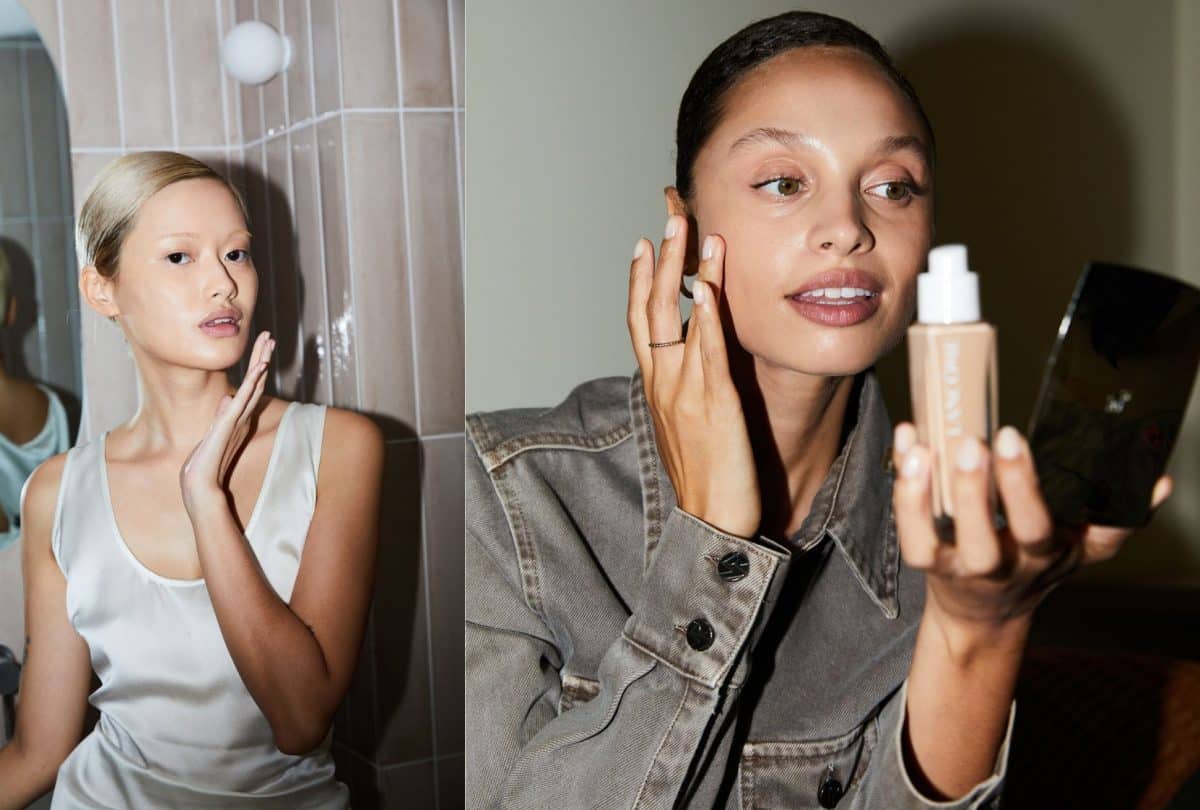
It's hard to overstate the importance of skin to our health and wellbeing. That’s why it’s vital to give it all the love and care it deserves to keep it healthy, and your complexion looking radiant.
The skin is our largest organ and offers all our other organs protection. Apart from providing a physical barrier, its microbiome fends off disease-causing germs, all the while providing a healthy-looking complexion. Proper skin care is important since the skin is the largest barrier against infection. Keeping it healthy, moist and supple, helps to keep the barrier strong and robust.
But things like oxidative stress can damage our skin - this happens when an oxygen molecule splits into single atoms with unpaired electrons, dubbed as free radicals. These scavenge the body to find other electrons to pair with, which causes damage to cells, our DNA, and important proteins in the skin such as collagen.
To reduce the harmful effects of free radicals, therefore maintaining young-looking skin, create a skincare and lifestyle routine to help promote skin resilience and radiance. There are a few simple habits anyone can adopt which can keep your skin looking healthy and radiant. No matter what age you are, start these healthy skin habits for a more radiant complexion.
Use products with and eat antioxidants
In the world of skincare, you can’t go wrong with antioxidants. These are molecules that fight free radicals in the body. Free radicals are compounds that can harm the body if their levels become too high. Free radicals trigger oxidative stress, which has been tagged in various illnesses such as heart disease, cancer, and diabetes. Plus, free radicals may lead to the premature ageing of the skin.
Our supply of antioxidants is being depleted by many factors in the environment, including air pollution, cigarette smoking, alcohol intake, high blood sugar levels, toxins, radiation, infections, lack of oxygen in the body, and high intake of polyunsaturated fatty acids, among others. The good news is antioxidants are easily replenished through food intake. Though the body generates its own antioxidants, such as the cellular antioxidant glutathione, there are many other ways to boost the levels for more efficient protection against oxidative stress caused by free radicals. Foods high in antioxidants include blueberries, strawberries, pecans, dark chocolate, kale, raspberries, beets, red cabbage, beans, and spinach.
Always, always protect the skin from the sun
The sun’s harmful ultraviolet rays can cause premature skin ageing and other signs of skin damage, including leathery skin, sun spots, wrinkles, hyperpigmentation, and sunburn, to name a few. Ultraviolet (UV) radiation is part of the natural energy produced by the sun. The three types include, ultraviolet C (UVC) which is the most dangerous but is completely blocked out by the ozone layer, ultraviolet A (UVA), which has a longer wavelength and is tied to skin ageing, and ultraviolet B (UVB), which has a shorter wavelength and is linked to skin burning.
Though these two latter rays differ in how they affect the skin, they both cause harm. Protecting the skin from the harmful rays of the sun is crucial. Spending a considerable amount of time under the sun, unprotected may cause skin cancer. Using sunscreen daily can help to protect the skin, and a recent study has found that the continuous application of the product provides beneficial effects on damaged skin due to sun exposure. The Australasian College of Dermatologists recommends using a sunscreen product with an SPF of 30 or higher. Make sure to apply sunscreen about 15 minutes before going out, with reapplication every two hours.
Make cleansing a priority
A crucial part of any skincare routine is cleansing every night before going to sleep. The term “beauty sleep” has been used since 1828 - it means that people need a good night’s rest for healthy skin. During sleep, the body cells regenerate and multiply. Having enough rest can help reduce the risk of premature skin ageing. And, cleaning the face before sleeping can aid in maintaining the skin’s radiance by preventing breakouts.
Failing to cleanse the face before sleep, leaves dirt, grime, makeup and other impurities on your skin. This build up can contribute to the proliferation of free radicals that can cause skin damage, attacking healthy collagen and elastin, which keep the skin elastic and heathy. Having healthy collagen and elastin prevents the appearance of wrinkles and fine lines.
Never forget to moisturise - even if your skin is oily
Moisturising the skin every day can reduce the likelihood of developing dryness and can actually help to balance oily skin, particularly if other astringent products are being used.
Applying a moisturiser is needed to replenish the skin’s hydration levels and natural oils, especially after cleansing, exfoliating, or having a facial. Supple, moist skin is also less likely to show signs of premature skin ageing. Make sure you’re choosing a moisturiser that works well for your skin. Consider sourcing one that has extra ingredients such as antioxidants to help fight free radical damage.
Exfoliate with chemical exfoliants
Exfoliating is the process of removing dead skin cells from the skin surface. Usually, the skin naturally sheds dead cells to make room for healthy and new ones and this is happening constantly, without you even knowing. However, if you have an impaired barrier function this process doesn’t happen properly and some dead skin cells don’t shed completely, leading to dry and flaky patches on the skin. They can also clog pores, causing bacterial build up and acne.
Chemical exfoliation using acids such as Alpha Hydroxy Acid (AHA) or Beta Hydroxy Acid (BHA) are the best methods. The problem with manual exfoliation, using scrubs or devices is that often perfectly healthy cells are scrubbed away as well. Using a gentle chemical exfoliant will gently buff back your skin and, you’ll notice that your skin looks fresh and radiant. It also opens the way for moisturisers and active skincare products to penetrate deeply into the skin.
Use retinol, peptides and growth factors
A standard skincare regimen usually contains using products that clean, exfoliate, and moisturise the skin. Apart from these, your active skincare products such as serums should contain essential ingredients to achieve more radiant skin – such as retinol, peptides and growth factors.
Retinol is a type of retinoid and a derivative of Vitamin A. It is used to improve acne and scarring, hyperpigmentation, wrinkles, fine lines, skin tone, and the skin’s hydration levels. This chemical ingredient is also added to skin creams to boost the production of collagen, making the skin plumper, and reducing the appearance of wrinkles and fine lines. If you want to build collagen, peptides and growth factors are other lesser known ingredients to look out for.
The way each works is quite complex, but in essence they behave as messengers in the skin, basically telling collagen to ‘turn on’. Collagen is a protein that serves as one of the major building blocks of the skin, hair, bones, tendons, muscles, and ligaments. It keeps the skin from sagging, providing a plump and young-looking skin. Using products that stimulate collagen will combat the premature signs of ageing. Having a daily routine for skincare is essential for everyone, regardless of their age. These suggestions will help you achieve radiant skin, without breaking the bank. Follow these steps every day to ensure that your skin gets the right type of care it needs.
Author, assoc. Prof. Greg Goodman is a leading dermatologist in Australia and holds senior lecturing positions with both Monash University and University College of London. He is a skilled dermatologist with an extensive specialist portfolio and founder of Script Skincare - an instore and online technology tool that helps people to understand their skin by creating a personalised skin profile and an unbiased, individually matched at home skincare routine.



